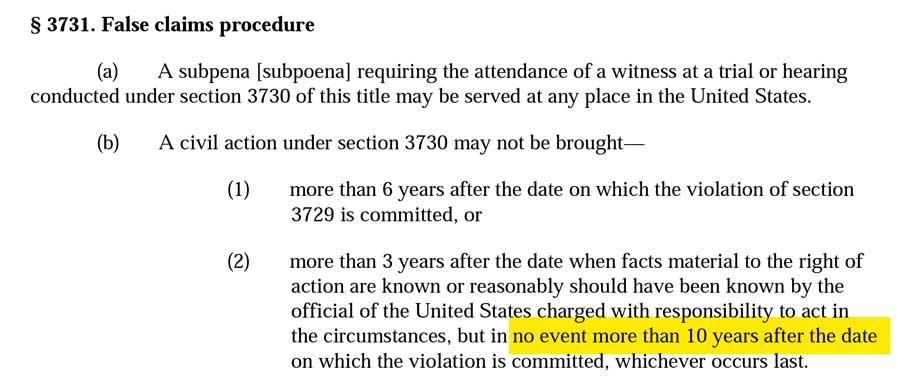
Currently, in 2022, the longest duration you must store medical records is 10 years according to § 3731. False claims procedure.
Physical Therapy Medical Record Retention Laws in 2022
How long is a physical therapist required to keep medical records?
The duration may vary based on governing body. Some third party payers may only require 3 years while federal law currently requires 10-years.
You are obligated to abide by the law or rule requiring the longest duration.
Which medical record retention law or rule are physical therapists in private practice required to follow?
The short answer is… “All of them!”
You are required to follow the most strict of all local, state, and federal laws. The same holds true to third-party payer rules and regulations. Currently, 10-years is the longest duration for medical record retention laws and this comes from the federal law.
Paper and Electronic Medical Records
Both paper and electronic medical records are subject to the § 3731. False claims procedure law.
Medicare Specific Guidelines for Medical Record Retention
The Medical Record Maintenance & Access Requirements is a 5-page document that outlines Medicare-specific requirements for medical record retention.
This document includes the following topics:
| Who may request access to these medical records? |
| What type of documentation must you maintain and provide to us or one of our Medicare contractors? |
| What happens if you don’t maintain required documentation or don’t provide access? |
| What are some best practices for meeting the documentation and maintenance requirements? |
7 BEST Physical Therapy SEO Tips for Private Practice
You Found This Article Because of Physical Therapy SEO! We are going to reverse engineer the physical therapy SEO strategy that brought you to this article. What is SEO? SEO stands for search engine optimization. Before you found this webpage, you...
Physical Therapy ReEvaluation CPT Code 97164
What is a Physical Therapy Reevaluation CPT Code 97164? According to Medicare A53309 CPT Code 97164: "Re-evaluations are separately reimbursable when the medical record supports that the patient's clinical status or condition required the...



